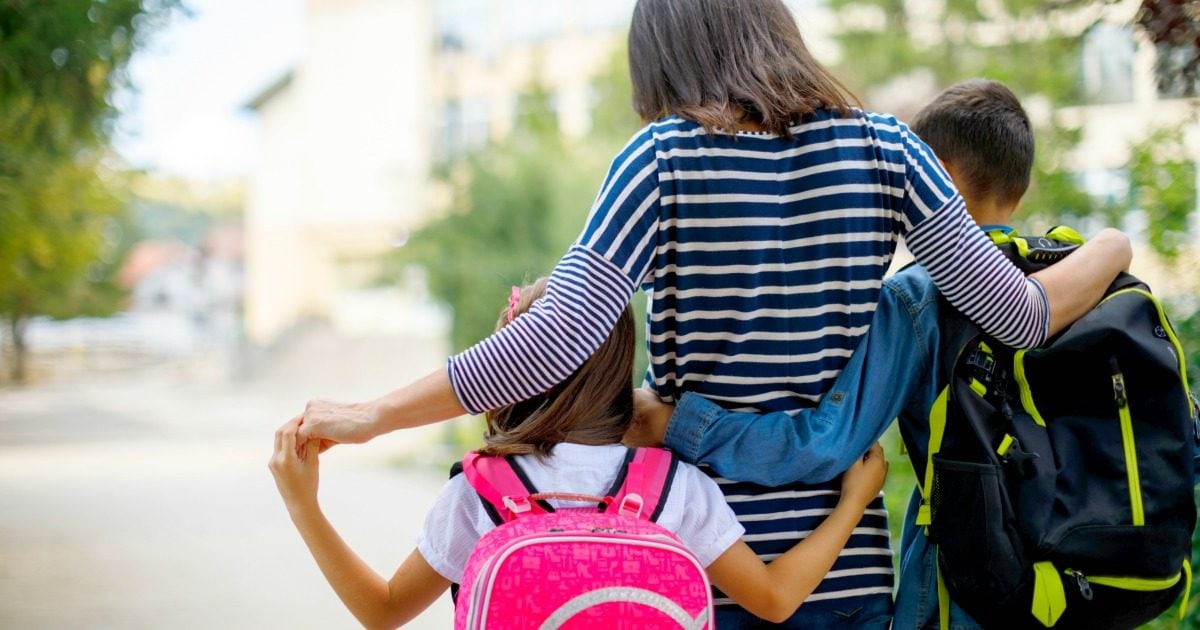
Helicopter, Free-range, Mollycoddle, Lawnmower….
The parenting styles experienced by Generation Z (our current crop of teenagers) all share a common thread – a lean towards over-parenting.
To unpack why we’ve pushed parenting so far in this direction, a peek back at history paints a pretty clear picture.
The 18th century is when the way parents parent changed.
“We went from a largely agricultural society to an industrial one. There started to be communal education of kids, so rather than being taught at home by their parents, children were a community asset,” author of Soft Teens David Gillespie told The Quicky.
Listen to the full chat with David Gillespie on The Quicky. Post continues after podcast.
“They had to learn certain capabilities like learning to read and write, so they’d be able to be useful in factories,” he continued.
The community started to care about the way children were being raised, and so began a trend of theorising about how best to do it.
Then came the 1920s, which saw the advent of the first parenting books.
As Mr Gillespie explained to Quicky host Claire Murphy, there was a child psychologist called J.B Watson who was making waves at the time.
“He used to experiment on a little boy called Albert. He taught Albert to fear things he shouldn’t – bunnies, feather dusters…he was trying to see if you could condition fear into children.” said Mr Gillespie.
He could. He did. Little Albert grew up into an adult that was still conditioned to fear those very things.

Top Comments
On the one hand, we are told snowplough parenting results in less resilience. On the other hand, some children do not have the faculties to deal with all situations on their own yet, and the consequences of failing to support them can be very harmful. They are ignoring the fact that some of the concerns these parents are raising may be valid and are something the child cannot simply ignore or sort out on their own.
For example, severe bullying can cause life long trauma or even lead to suicide and it is often something the child cannot cope with on their own. The parents should be their child's advocate in situations such as these, they should provide support.
I was severely bullied at school. My parents were very strict, physical punishment, blamed me for the bullying and left me to deal with *everything* on my own - no snowploughing or helicoptering, No advocacy or support. I developed various mental health issues and barely finished my HSC.
I am NOT resilient, I am a hypersensitive, emotional person. I am 40 and I still have anxiety and self-esteem issues due to the way I was parented and I'll never forget the bullying. I still hate being inside any school.
This is pretty basic. Any parent who does everything for their child is an idiot... no one needs a parenting expert to tell them that. If you can’t say no to your kid that’s something you need therapy for.
Though weird examples- leaving your child without food at school seems like an odd one. Sure, don’t do their homework, but lots of shy kids will go hungry rather than ask the canteen for food. And what sort of monster doesn’t replace a dropped ice cream?! You can probably do that and still get them to do chores and be reasonable humans.
All that being said, the teenagers seem fine. Okay they might not know how to do everything you were taught as a kid, but I bet they can solve the office tech issues even if they can’t use the dishwasher. Every generation is desperately concerned the ones after them won’t live up to them... but maybe these kids will be less abusive and capitalist than all the ones raised by parents who wouldnt hug them? Do we want them to all end up like a generation that ended in shell shock, depression and domestic violence? All the research is that people with high self esteem from loving families are the ones who really display resilience in the face of adversity, ‘hardness’ is usually a combination of bad adaptations that allow someone to survive but not be happy.
Let’s face it, they couldn’t possibly end up worse than the boomers, the main critics of every other generation.